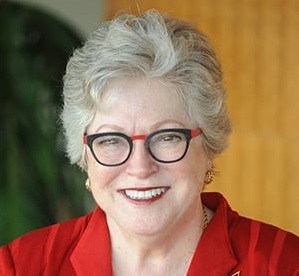 The literary world is mourning the death of Toni Morrison, who deserved every magnificent award she received. It actually seemed that the awards were too small to celebrate what she had managed to put into words. “We speak, we write, we do language,” she wrote. “This is how civilizations heal.” What could be more important just now than crafting language that heals a broken nation, a people concerned about the current dystopic narrative?
The literary world is mourning the death of Toni Morrison, who deserved every magnificent award she received. It actually seemed that the awards were too small to celebrate what she had managed to put into words. “We speak, we write, we do language,” she wrote. “This is how civilizations heal.” What could be more important just now than crafting language that heals a broken nation, a people concerned about the current dystopic narrative?
Some of us were stumped by Morrison’s creative language; others found deep resonance with their own story of unrelenting grief. How she “did language” invited a greater intentionality in telling the stories that might make for a different future. Owning one’s experience, with all its tragic layers, is necessary to speak and write a hopeful chronicle.
Recently I have been working through a soon-to-be-published manuscript titled “Rizpah’s Daughters.” It is written by Dan and Sharon Buttry, global peacemakers for American Baptist Churches’ International Ministries. They used a rather obscure text of the Hebrew Bible to chart a way to move beyond trauma in a resilient and constructive way. Using language to devise a new storyline not shackled to the past is central to the recovery process.
Rizpah, a concubine of King Saul, is victimized by the blood feud between tribal inhabitants of Israel. Recounted in 2 Samuel 21, the story of a marginalized woman’s response to trauma is instructive for our time. Her two sons, fathered by King Saul, are slaughtered in an attempt to appease the Gibeonites, an ethnic group betrayed by the monarchy. They are publicly impaled, left as carrion.
Rizpah has only the power of her grief and protest as response. She stays by the deceased for months, keeping the birds and jackals from attacking the decomposing bodies. Lack of a decent burial was a humiliating reality in her culture, so she is basically performing an act of civil disobedience as she cries out her dissent.
The Buttrys write:
As a mother, Rizpah has lost what is most precious to her, and she has no hope of her sons being restored to her. But she does not step aside. Instead, she steps into the power of her grief and takes action . . . She acts from her passionate heart as a mother, and the result turns out to be history shaking and making. Rizpah speaks to us today that we can explore our feelings and our passions and resist the temptation to say “I am alone and can’t do anything to confront injustice.”
Rizpah refused to live a victimized life as she called the highest power in the land to do right. Her resistant activity finally got the attention of King David who provided a dignified burial for the bones of King Saul and his progeny, including her sons. Seeking justice for the legacy of her family was important enough to be included in the larger story of the Davidic dynasty.
Trauma is the lived reality of so many in our world. A young Rohingya man, whom I will not name for his own security, chronicled the places and people of his land as provenance of their right to be in the Rakhine State. They had been there for generations, and his diaries offered language to name identity and human rights, granting dignity if not repatriation to his homeland.
“The biblical story of Rizpah, a marginalized woman’s response to trauma, is instructive for our time.”
Jim Rendon has offered a pathway for people suffering from trauma in his constructive book, Upside: The New Science of Post-Traumatic Growth. He argues that people do not have to be simply victims, irreparably damaged and broken. Trauma can be a catalyst for growth; old assumptions are shattered, and one must find a new way forward.
Rendon offers the following tools:
- Tell a new story, for the trauma has shredded the old narratives. This requires positive agency and displaces trauma as the driver of identity.
- Rely on others. None of us can flourish without community and support, and when those who have suffered trauma reach out to others, healing can come.
- Express what has actually happened. Talking about the trauma lessens its power to cripple. When one is “heard into speech” one is strengthened.
- Look for the positive. Is there a way to see anything good from the hurtful experience? Noticing this is constructive.
- Pose questions of meaning, especially related to faith. Rendon believes that faith traditions offer wisdom on human suffering, and post-traumatic growth occurs as one engages their meta-stories.
- Open up to new experiences. This final tool calls for creativity as one seeks wholistic healing.
“Using language to devise a new storyline not shackled to the past is central to the recovery process.”
Post-traumatic stress disorder does not have to have the last word; these practices can move the suffering toward growth.
Toni Morrison was concerned that we appropriate language so that civilizations
might heal. Claiming the strength of agency is critical to this pursuit. And God will be at work, too.
Related commentary:
Erin Albin | Why all congregational ministry should be trauma ministry
